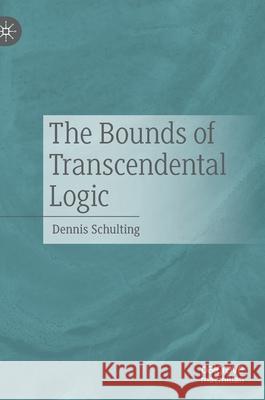The Bounds of Transcendental Logic » książka
topmenu
The Bounds of Transcendental Logic
ISBN-13: 9783030712839 / Angielski / Twarda / 2021 / 196 str.
Kategorie BISAC:
Wydawca:
Palgrave MacMillan
Język:
Angielski
ISBN-13:
9783030712839
Rok wydania:
2021
Wydanie:
2021
Ilość stron:
196
Waga:
0.41 kg
Wymiary:
21.01 x 14.81 x 1.42
Oprawa:
Twarda
Wolumenów:
01
Dodatkowe informacje:
Bibliografia
Wydanie ilustrowane
Wydanie ilustrowane











